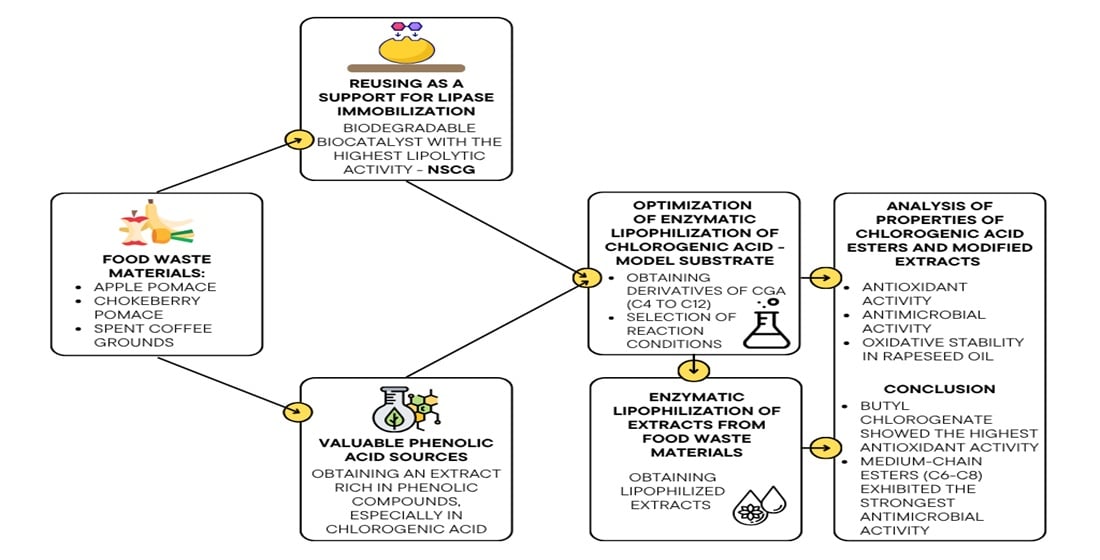The Double Life of Plant-Based Food Waste: A Source of Phenolic Acids and a Carrier for Immobilization of Lipases Capable of Their Lipophilization
Abstract
Share and Cite
Jasińska, K.; Zieniuk, B.; Bryła, M.; Padewska, D.; Brzezińska, R.; Kruszewski, B.; Nowak, D.; Fabiszewska, A. The Double Life of Plant-Based Food Waste: A Source of Phenolic Acids and a Carrier for Immobilization of Lipases Capable of Their Lipophilization. Int. J. Mol. Sci. 2025, 26, 11400. https://doi.org/10.3390/ijms262311400
Jasińska K, Zieniuk B, Bryła M, Padewska D, Brzezińska R, Kruszewski B, Nowak D, Fabiszewska A. The Double Life of Plant-Based Food Waste: A Source of Phenolic Acids and a Carrier for Immobilization of Lipases Capable of Their Lipophilization. International Journal of Molecular Sciences. 2025; 26(23):11400. https://doi.org/10.3390/ijms262311400
Chicago/Turabian StyleJasińska, Karina, Bartłomiej Zieniuk, Marcin Bryła, Daria Padewska, Rita Brzezińska, Bartosz Kruszewski, Dorota Nowak, and Agata Fabiszewska. 2025. "The Double Life of Plant-Based Food Waste: A Source of Phenolic Acids and a Carrier for Immobilization of Lipases Capable of Their Lipophilization" International Journal of Molecular Sciences 26, no. 23: 11400. https://doi.org/10.3390/ijms262311400
APA StyleJasińska, K., Zieniuk, B., Bryła, M., Padewska, D., Brzezińska, R., Kruszewski, B., Nowak, D., & Fabiszewska, A. (2025). The Double Life of Plant-Based Food Waste: A Source of Phenolic Acids and a Carrier for Immobilization of Lipases Capable of Their Lipophilization. International Journal of Molecular Sciences, 26(23), 11400. https://doi.org/10.3390/ijms262311400








